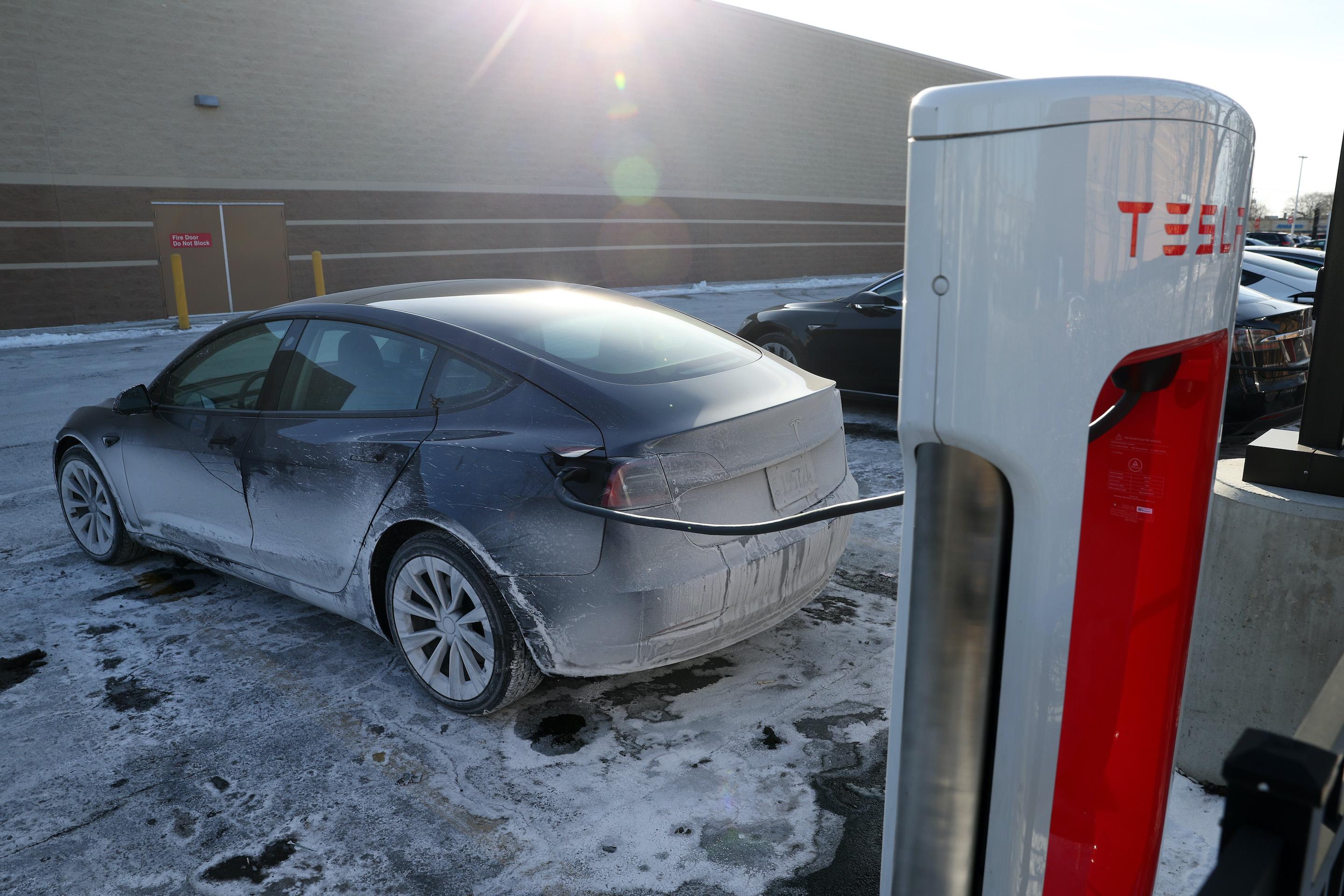Commentary
California is “requiring that all NEW cars sold in 2035 and beyond are zero-emission vehicles which includes battery electric vehicles, plug-in hybrid electric vehicles and fuel cell electric vehicles,” according to the California Air Resources Board.
“Electric vehicles can be driven in both extremely hot and cold weather. Cold weather can reduce range, but with longer-range electric vehicles on the market, with a little planning this won’t impact the vehicles’ ability to get you where you need to go.”
A year ago April, Gov. Gavin Newsom enthused, “California is setting the bar for climate action—and we’re achieving our goals years ahead of schedule thanks to unprecedented investments secured in partnership with the Legislature. ... California’s ZEV leadership continues to inspire other states to follow California’s example.”
Probably not.
On Monday, Iowa causers braved the frozen tundra to traipse to the polls. “Bundle up for subzero temps, coldest Iowa Caucus on record,” warned USA today. As voters drove to vote, the temperature was expected to well below zero Fahrenheit, with a wind chill of less than minus-25.
The Kansas City Chiefs over the weekend defeated the Miami Dolphins in the fourth-coldest NFL game in history. The thermometer clocked at minus-4 degrees Fahrenheit at game time, with a wind chill of minus-27 degrees. Reported KCTV, a local station, “EMTs responded to a total of 69 calls,” half for hypothermia.
Of course, you can’t judge the state of any event with only a couple of data points. Perhaps next January the temperatures will set records for warmth. But what’s clear is the last thing you want to drive in snowy, frigid weather is an electric vehicle. EVs might make sense driving around the balmy suburbs of Southern California, temperature 63 degrees as I write this, but could prove deadly in Siberian conditions.
Canada Freezing
The Canadians know this better than we do. The Global News reported Jan. 13 from Calgary in a video report headlined, “Cold Snap Exposes Huge Challenge for Electric Vehicle Owners.” A reporter stood in front of EVs charging in a Tesla lot. Drivers told her their Teslas “were only getting about half the mileage they usually do under these extreme cold conditions.”Driver Chelsea Deng said her Tesla’s duration in the cold was “140 kilometers,” or just 87 miles, “so I have to charge in the middle of the day in order to get back home.” Alberta’s electric system operator said the province set a new record for usage.
That’s ironic because, according to Alberta Energy, “Alberta is a global energy leader with a diverse resource portfolio that includes oil, oil sands, natural gas, minerals, and coal, as well as unconventional resources including shale gas, coal bed methane and tight oil and gas. Alberta also supports renewable and alternative resources.”
To be environmentally correct, they had to throw in that last sentence. But fossil fuel production is central to the state’s economy.
Sweden Cancels Buses
Sweden long has been a left-wing, politically and environmentally “correct” country. They recently announced a transition to electric buses. Peter Imanuelsen, who goes by Peter Sweden, reported Jan. 6: “Busses are being canceled as Sweden experiences the coldest weather this century. As you might have heard, we are still waiting on the global warming in Sweden. We just had the coldest temperature this century.“Back in 2006 the media warned us that by 2026 people would have forgotten how to ski because of the lack of snow. ... Now it’s being reported that a person living in Arjeplog noted a chillingly cold -49.7C (that’s -57.5 Fahrenheit) on his thermometer before it stopped working when it hit -50C. This is very close to being the coldest temperature ever recorded in Sweden. The record sits at -52.6C all the way back in 1966.”
He reported on the city of Skellefteå, which has been transitioning quickly from diesel to electric buses. And he quoted Marie Larsson, CEO at Skellefteå Buss, who said, “The electric busses will probably be removed from traffic this afternoon because they have very difficult to keep warm when in service. ... It is clear that the electric busses are affected the most of this extreme cold.”
Frigid Memories
I grew up in Michigan and remember the coldest winter ever across 1976–77. It went down to minus-30 degrees and parts of my car froze. If I left the headlights on without the motor running, in five minutes the battery would be dead.Another example comes from when I was in the U.S. Army in (West) Germany from 1979–82.
Every couple of months our unit, the 533rd Combat Electronic Warfare Intelligence Battalion, went on maneuvers to train to fight a potential war against an invasion by the Communist Soviet Army. In the summer, it was fun, like going camping. In the winter, it was no fun, as those years also were some of the coldest on record in Northern Europe.
Our intercept radios were powered by generators on trailers hauled behind our deuce-and-a-half trucks. When it was cold, the generators also were used to heat our C-rations. Just put a can of pork and beans on top of the generator, and in a few minutes you’d have a hot meal. There was no excess strain on the generator, because it was just excess heat. And it was easier than setting up a propane heater.
Absurdly, President Biden is trying to get the military to buy only electric vehicles by 2030.
When asked of the president’s goal was realistic, last April Department of Energy Secretary Jennifer Granholm testified, “I do, and I think we can get there, as well. I do think that reducing our reliance on the volatility of globally traded fossil fuels where we know that global events like the war in Ukraine can jack up prices for people back home ... does not contribute to energy security.”
Neither she nor Mr. Biden served in the military. But she was the governor of Michigan, and so presumably knows something about vehicles. Meaning she has to know this idea is absurd. Just look at the war in Ukraine and imagine it being conducted—right now, in sub-zero temperatures on the Ukrainian steppe—with EVs.
And how about a potential war with communist China? As I have reported many times, they are eager to sell us EVs and have taken dominance of cobalt and other minerals essential for battery production. But they’re probably not going to turn the People’s Liberation Army into a joke by restricting themselves to only EVs.














